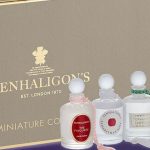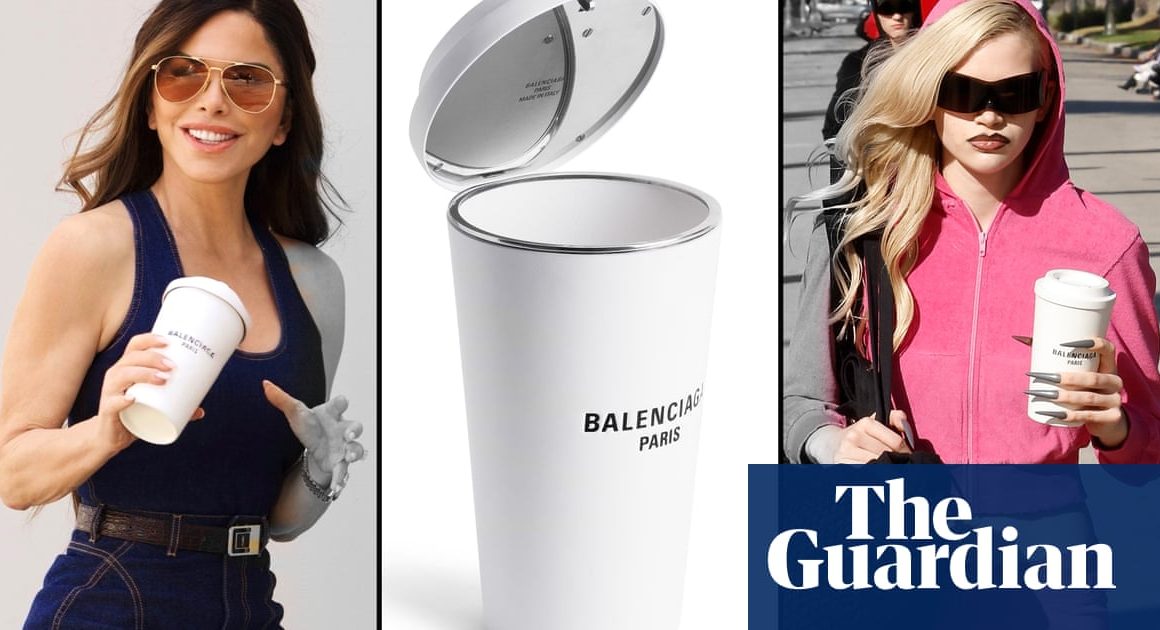What is “common” these days – and is it even OK to say it?
Some might say it’s a controversial term, but for Nicky Haslam, the 85-year-old English designer, socialite and self-appointed arbiter of taste, defining what is common is not something to shy away from – on the contrary, it has become an annual ritual.
Every Christmas since 2018, Haslam has produced a tea towel that lists 40 things, people and sayings “Nicky Haslam finds common”, the unifying theme being that they tend to be middlebrow. Their success hinges on relatability, hoping to tap into the raw terror that something you do, eat or say might appear on it.
Past highlights include “not eating carbs”, “type 2 diabetes”, “Bono” and “destination weddings”, while this year he has included “unpeeled tomatoes”, “barn conversions” and “Antony Gormley sculptures”. The list’s unveiling on Instagram has become a landmark event, and the list itself a viral sensation. This year is no different.
The tea towels cost £40, and £50 if they’re signed. For the first time in six years, they are being sold in a shop – Selfridges. “Tea towels are the opposite of taste. I’m simply proclaiming what rude taste I have,” Haslam says in his home in west London. “I don’t know how well they sell, but I know they sell out every year and it looks like the same this year.” Previously, you could only buy one by emailing his assistant.
Haslam and his assistant still pack them up in his living room, a large space that is a testament to his preference for Eurocentric grandeur, all porcelain sculptures, linen curtains and plastic fig branches. On a large glass table sits one of his seven books, alongside TS Eliot. On the walls, a mix of pop art and Tories painted in oils. “Standalone pictures and picture lights are awful,” he says, looking around. “A room’s objects should meld into another, so pictures should touch lamps and so on.” Furniture is key – “you have to jam it all in, so it talks, and you can talk. It’s about intimacy.”
Like much of his career, from “cleaning waste paper baskets” in his early 20s at US Vogue to interior design for rock stars, the tea towel idea came on a whim. Based on his Evening Standard column, he tried doing a T-shirt and toilet paper, “but loo roll is terribly expensive”. Tea towels were easier to print on, “but, yes, they’re common”. The preferred term is drying-up cloth, he says.
“I regret some because they aren’t good enough, but it’s the expressions I find fun,” he says, wearing head-to-toe Primark (“because it’s chic”). He keeps a running list, which he periodically texts his assistant – “I just sent ‘chocolate croissants’,” he says, shaking his head – but is overwhelmed by suggestions. “[Jeremy Clarkson] gave me ‘needing house keys’” and the author Diana Cooper suggested “‘saying bye bye’. It’s what you say to children when they go to sleep, but nowadays newscasters say it.”
Haslam became an interior designer in the 1970s because certain celebrities “wanted a man who could put furniture in”, but says it only worked out when they didn’t have girlfriends. He is responsible for the homes of Mick Jagger, Rod Stewart and Bryan Ferry, who, he claims, all have great taste: “If he wasn’t a rock star, Bryan would have been a decorator.”
The subject of taste is a knotty one for the English. Sitting at the intersection of success, belonging and class, good taste is intangible, something instinctive, a code that ultimately acts as a social tripwire that can expose you. In her book Bad Taste, Nathalie Olah writes that “conformity to ideas of tastefulness is often a requirement handed down to the lower classes as a necessity for entry to the hall of financial security while the wealthy are free to live like pigs.”
after newsletter promotion
Eton-educated Haslam insists that taste is not about money or class, and holds certain young royals – and billionaires – in as much contempt as he does “side plates”, “self-pity” or “divorce”.
“You can absolutely have good taste without money – it’s simply about not being run of the mill,” he says, seated beneath a large portrait of himself.
Occasionally, the list causes offence – “loving your parents” divided some – and he recently received a letter from the Welsh guards after they were included. “I’m not a snob. Well, maybe a bore snob,” he says. “It’s just a bit of levity, something to look forward to.”












